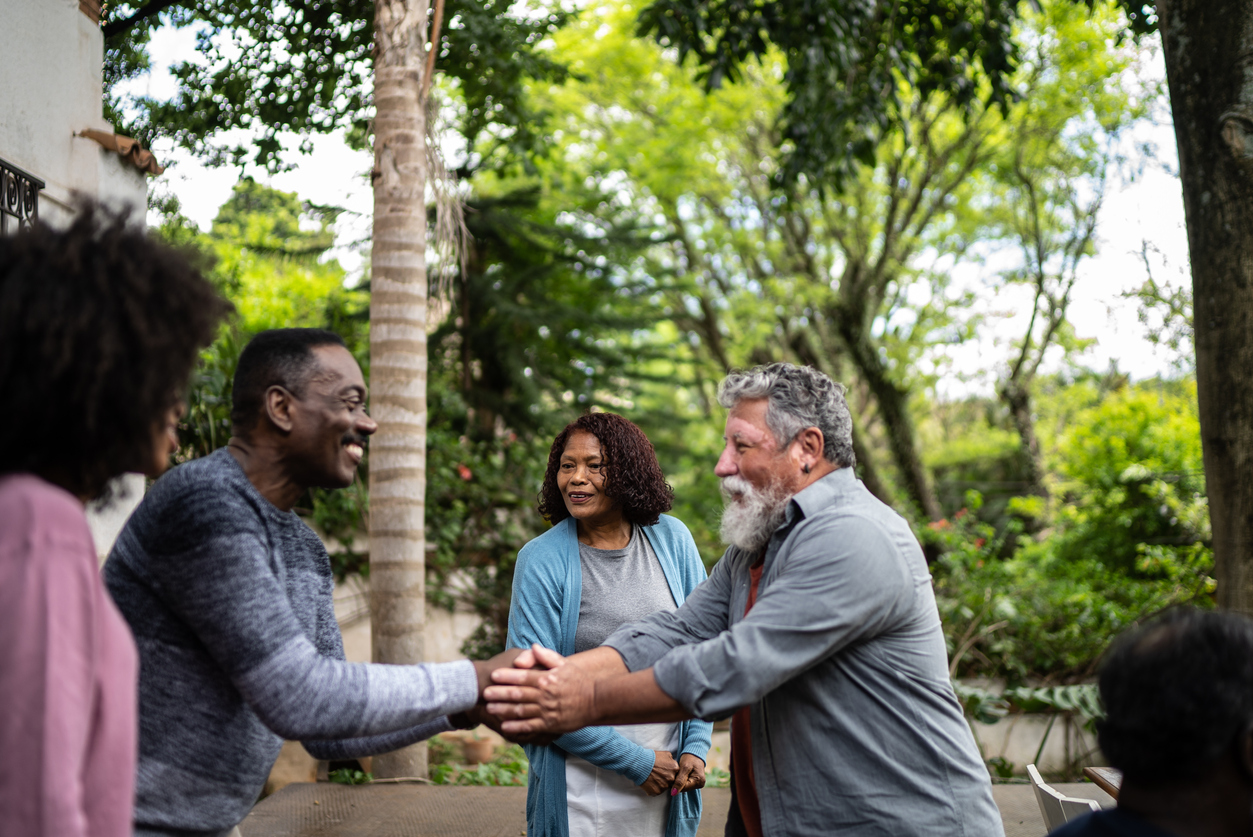Fostering Community Inclusion for Recovery for People with Serious Mental Illness
Meaningful community participation such as employment, education, recreation and leisure activities, religious and spiritual activities, and engagement in civil life is a critical part of recovering from serious mental illness (SMI). In a session at APA’s Annual Meeting in May, speakers provided an overview of how to promote community inclusion for persons with SMI from a variety of perspectives.

“We know from first-person accounts of recovery that self-directed activities that provide a sense of meaning and purpose to the individual with serious mental illness [SMI] are critical turning points that serve as significant personal markers of progress in recovery,” session chair Alexia Wolf, M.P.H., told Psychiatric News. She is executive director of the Behavioral Health Consortium in Delaware and the social determinants of health expert for SMI Adviser.1
Panelists noted that while about 70% of people with serious mental illness report wanting to work, as many as 80% are unemployed. They also highlighted that psychiatrists and mental health professionals can play an important role in helping people with serious mental illness participate in their communities in meaningful ways. Taking an approach that focuses on the person’s strengths, interests, and passions can help.

Community participation-oriented initiatives include programs such as supported housing and supported employment. Supported employment is an approach to helping people with serious mental illnesses obtain competitive work in the community and providing the assistance necessary to ensure their success in the workplace.2 Finding supported employment can be difficult; SMI Advisor suggests checking with a local mental health agency, the state department of vocational rehabilitation, or state or local unemployment office. Supportive housing is affordable rental housing that helps provide stability for vulnerable people who do not have a home or are leaving institutions or hospitals. It is generally targeted to people facing multiple challenges and is linked to case management and various other support services such as health care, workforce development and family support.3
Community involvement provides the opportunity for a range of benefits that are important to recovery for individuals with serious mental illness. It can:
- Help give individuals a sense of purpose and belonging.
- Help develop meaningful connections and social supports.
- Offer opportunities to learn, grow and develop skills.
- Provide opportunities to learn about and access resources and services.
In addition, when people with serious mental illness actively participate in the community, it can help raise awareness, dispel misconceptions, and address the stigma and discrimination associated with mental illness. This can contribute to a more inclusive and supportive community and more potential opportunities for others.
Photo credits: iStock: FG Trade and Edwin Tan
References
- SMI Adviser is a free resource for all mental health professionals who treat patients with SMI; it is funded by the Substance Abuse and Mental Health Services and administered by APA.
- Substance Abuse and Mental Health Services Administration. Supported Employment: Evidence-Based Practice Kit (.pdf).
- Corporation for Supportive Housing. Supportive Housing 101.
